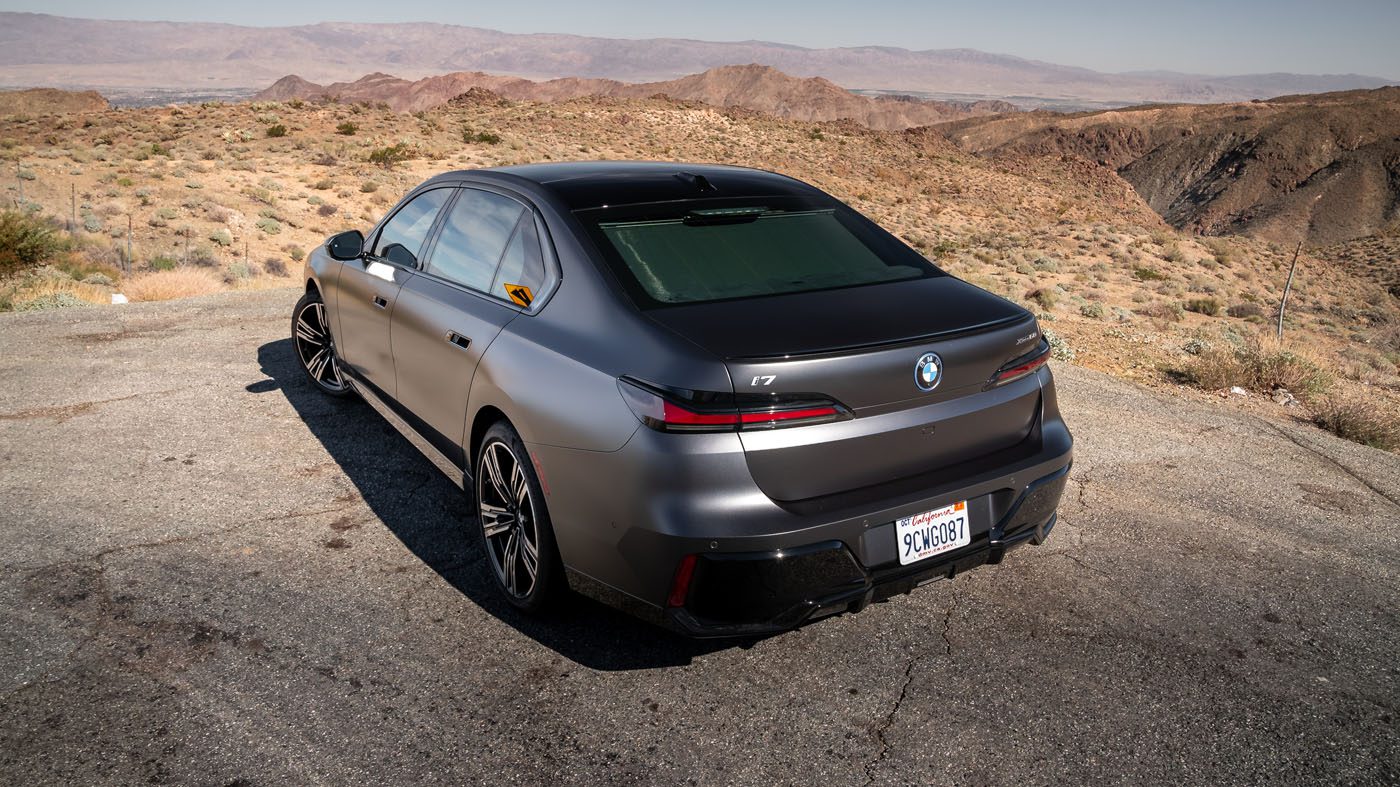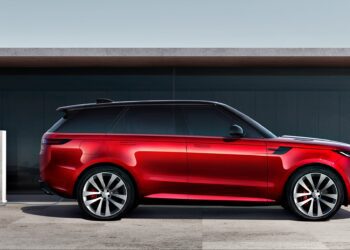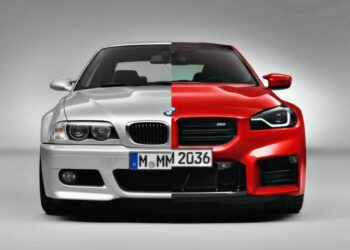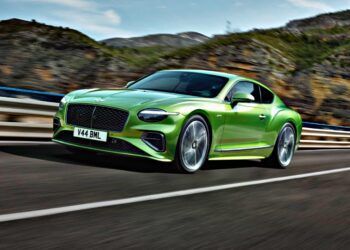The BMW 7 Series just took a significant leap forward, and all it took was ditching its fossil-fuel-burning powertrain to do it.
In terms of sales, the Mercedes-Benz S-Class dominates the full-size luxury sedan segment in the U.S. In 2021, the sedan with a three-pointed star on its hood sold nearly twice as many units as Bavaria’s best. In fact, the last time the 7 Series outsold its closest competitor was a decade ago, in 2012, so something had to change.
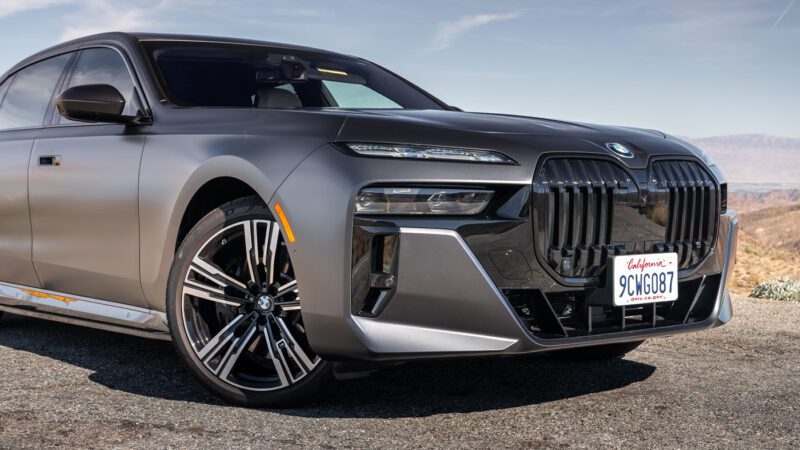
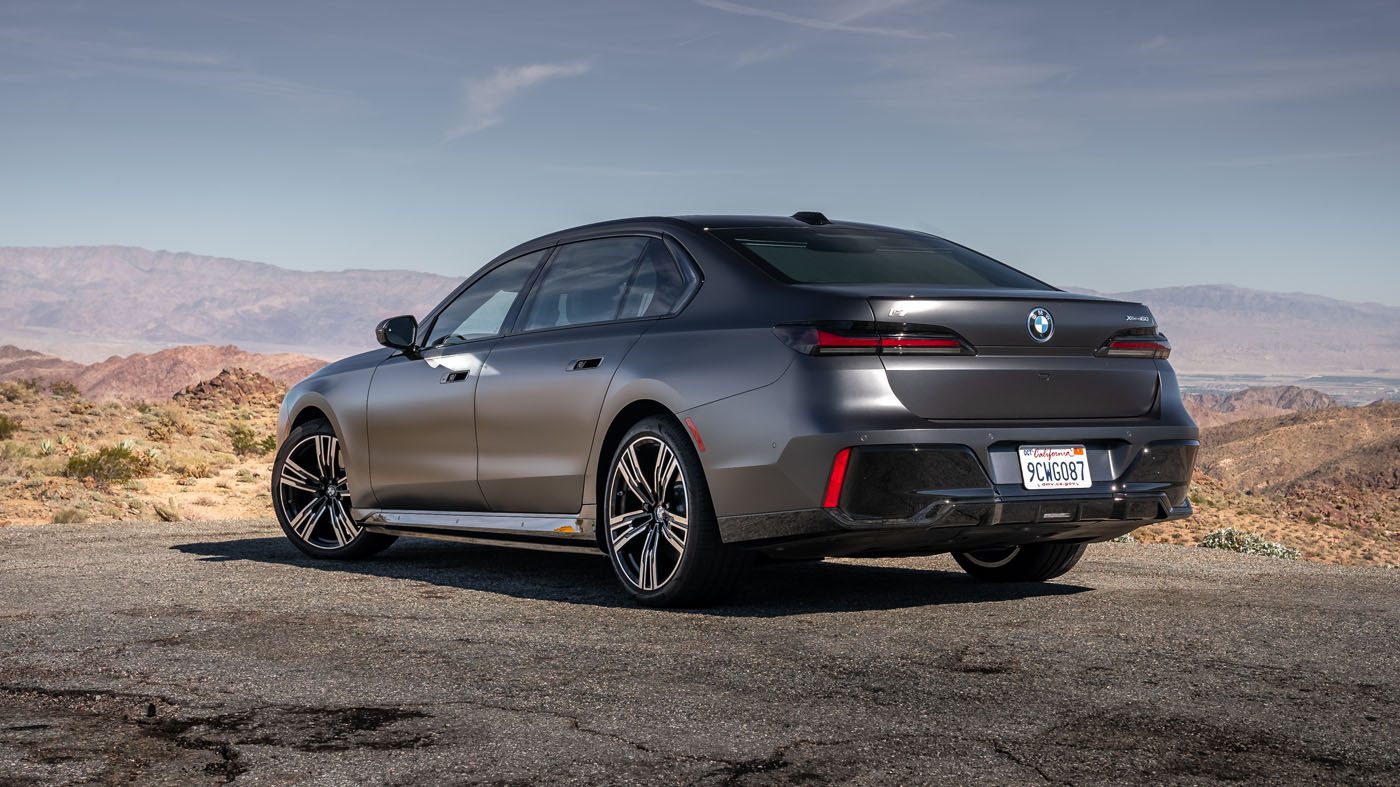
Enter the 2023 BMW i7. It’s the first ever fully electric 7 Series based on the new G70 platform and it’s gunning for the S-Class and its electric counterpart, the EQS 580. With nearly Rolls-Royce interior noise levels, a cleverly-tuned air suspension system, and an interior cabin that feels truly opulent, this electrified seven may just be the best yet, if you can stand to look at it, that is.
From a glance, it’s nearly impossible to tell that the 2023 BMW i7 is not just another gas-burning large sedan. Its long hood, chunky proportions, and upright nature allude to an engine under its hood. And that’s because, in some configurations, there is. This latest G70 7 Series is still available with a twin-turbocharged V8 only for the U.S. market. The rest of the world will have to plug in if they want the best performance figures.
Its more traditional styling has its pros and cons, though. For starters, this i7 will do well with folks that don’t necessarily want to drive around in an egg-shaped aero-focused sedan. Instead, it gently nudges its customer base toward an electrified future without drastic changes. On the flip side, however, this i7 lacks some critical features found in cars envisioned as EVs from the start, such as a front storage space.
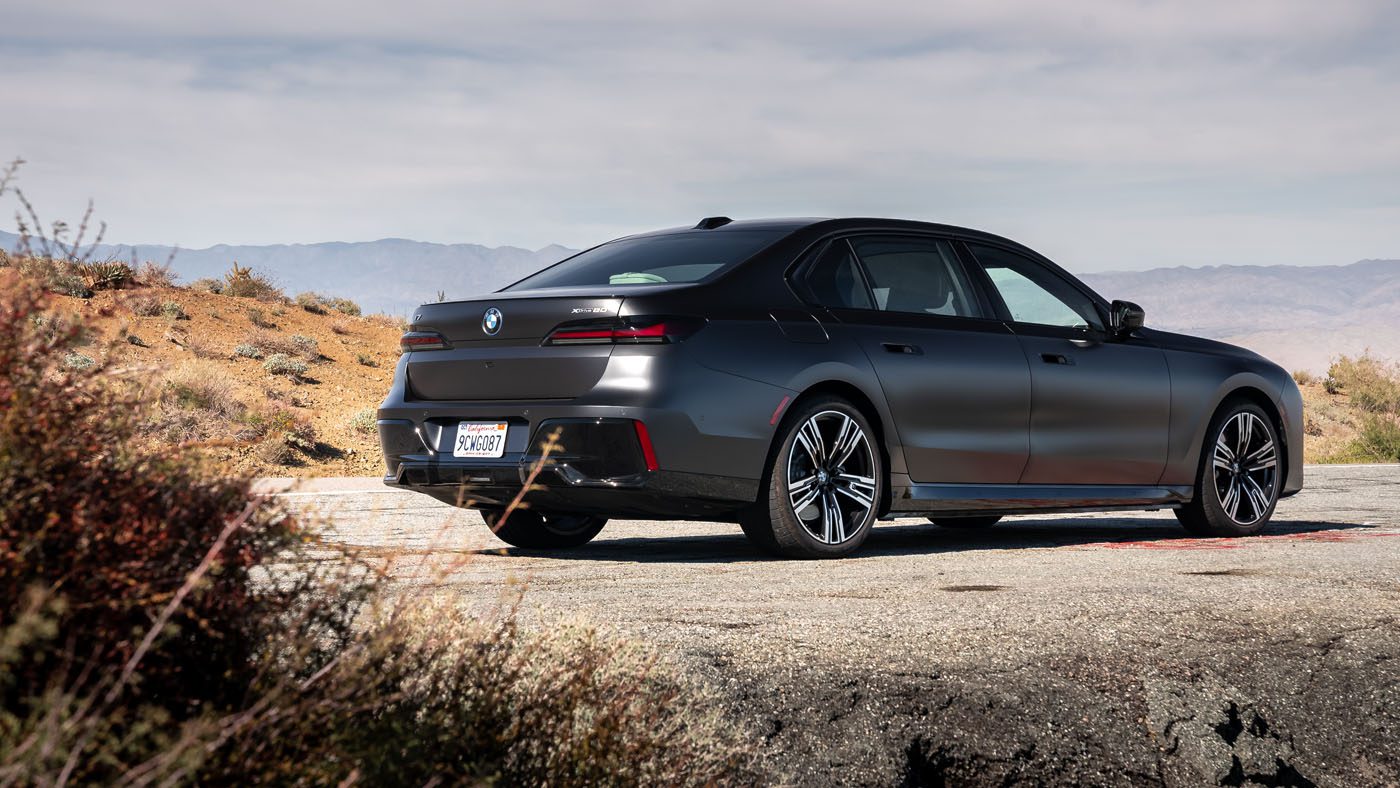
The i7 is quite a sizable machine. At 212.2 in long, 76.8 in wide, and 60.8 in tall, it is larger in every metric than its direct competitor, the Mercedes-Benz EQS 580 4Matic, and 5.1 in longer than its predecessor. This translates to both a formidable road presence and a truly roomy cabin. More on that later.
The elephant in the room, however, is its styling. Its front end builds on the G11 generation car that it replaces with even larger kidney grilles, thin split headlights, and sharp angles in its lower front fascia. Although these design choices look much better in person than in photographs, they’ll still likely split opinions like the rest of the brand’s current catalog.
However, one thing that will lead to a more general consensus is how the i7 performs on the road. Having driven this electrified sedan back to back with its gas-powered sibling, it is undeniably better with batteries. Although the German carmaker has gone to great lengths to mute the sounds and vibrations from its twin-turbocharged V8 up front, it can’t match the absolute silence the i7 delivers.
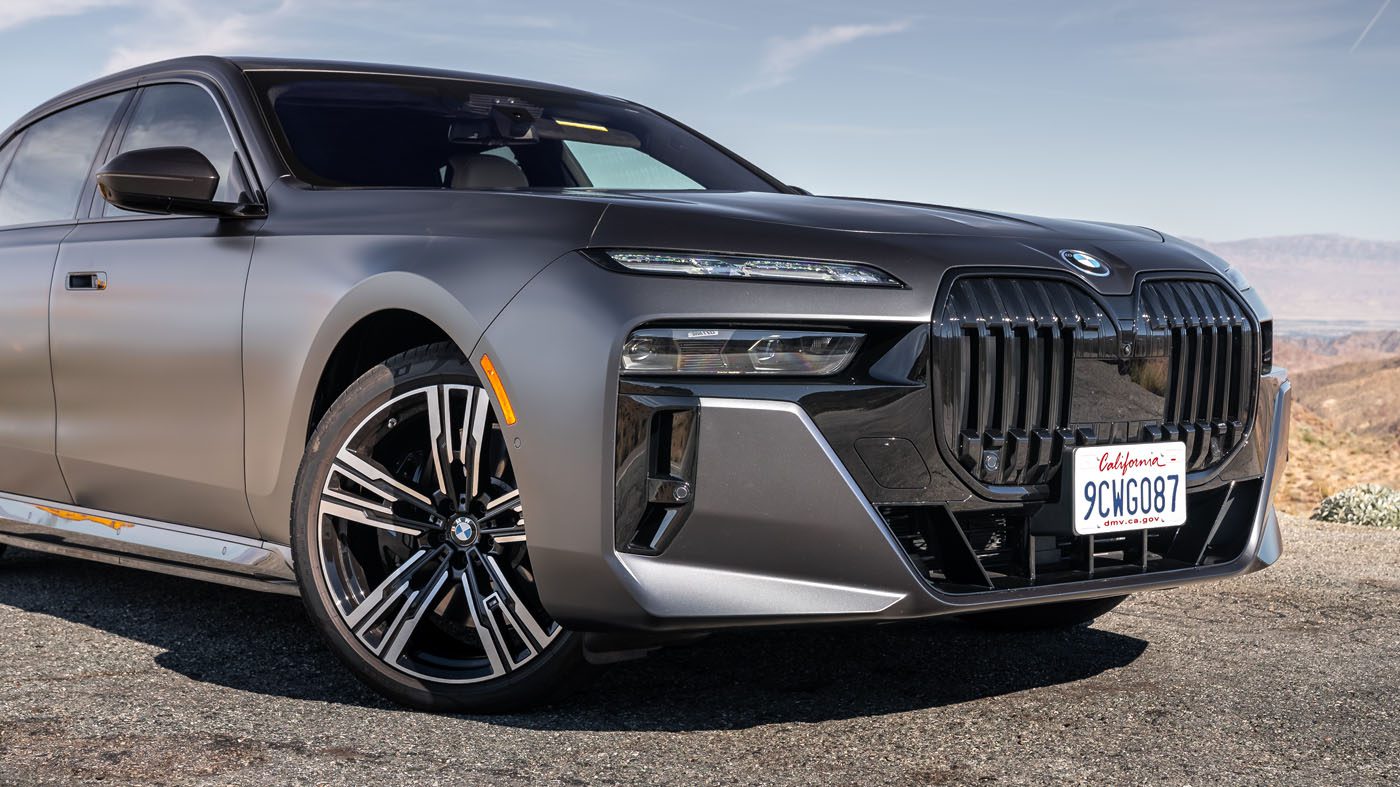
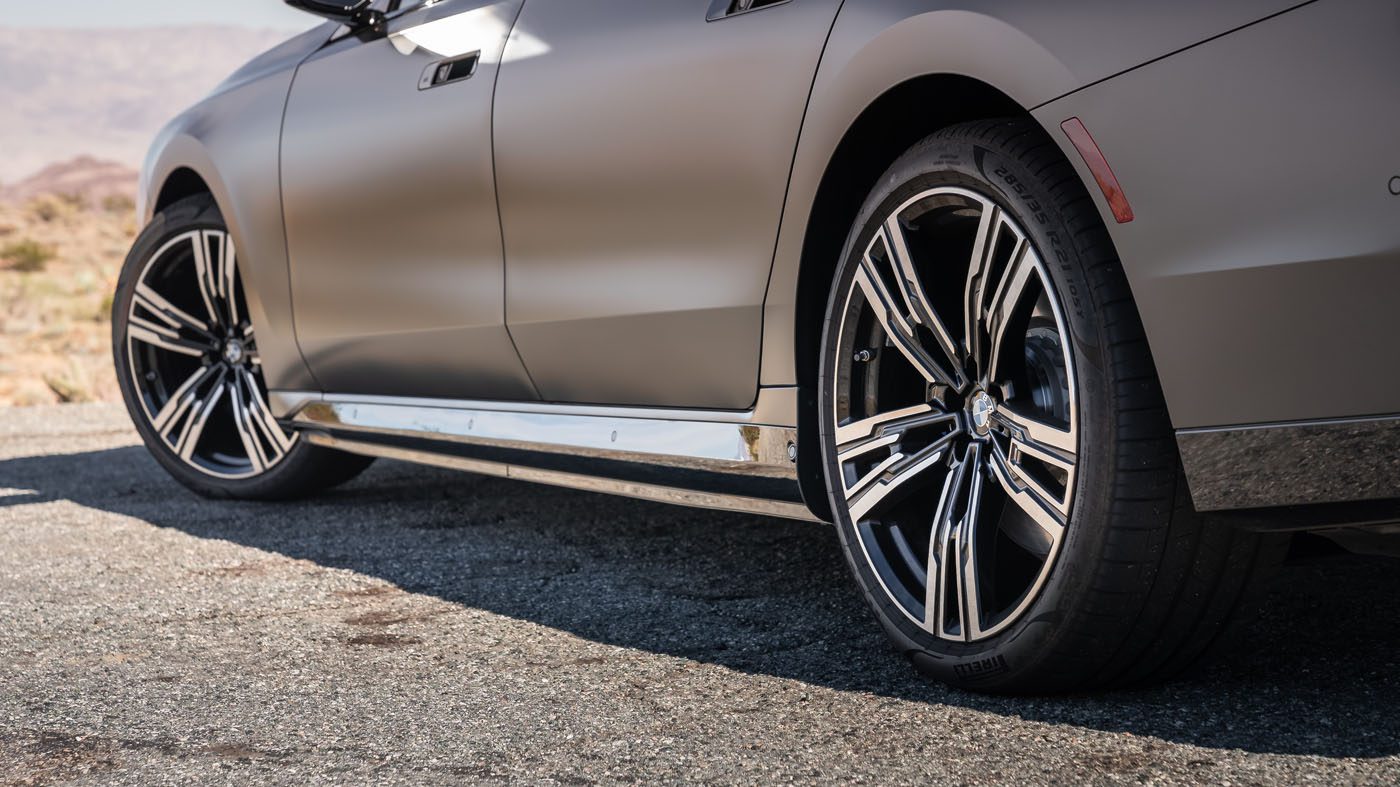
Like a proper flagship luxury sedan, the i7 is quiet and quick. No road noise, wind, or harsh road imperfections disturb the i7’s interior. It achieves Rolls-Royce levels of interior noise for substantially less money. However, thanks to two electric motors, one in each axle, the i7 still instantly delivers 536 hp and 549 lb-ft of torque. BMW estimates it’ll reach 60 mph in 4.5 seconds before continuing onto a top speed of 149 mph.
2022 Porsche Cayenne GTS Review: A Proper Athlete
With a 101.7 kWh battery in its floor, BMW estimates that the i7 will deliver up to 300 miles of range. It can charge at speeds of up to 195 kW, adding up to 80 miles in ten minutes plugged in. Like other German carmakers, BMW includes three years of free unlimited charging at Electrify America stations.
Although the i7’s electrified powertrain delivers excellent power and range, it comes at the cost of weight. While the V8-powered 760i xDrive has a curb weight of 4,969 lb, its electrified sibling tips the scales at 5,917 lb, a 948 lb difference. This is marginally heavier than the 5,888-lb EQS 580 but substantially more than the 5,236 Lucid Air.
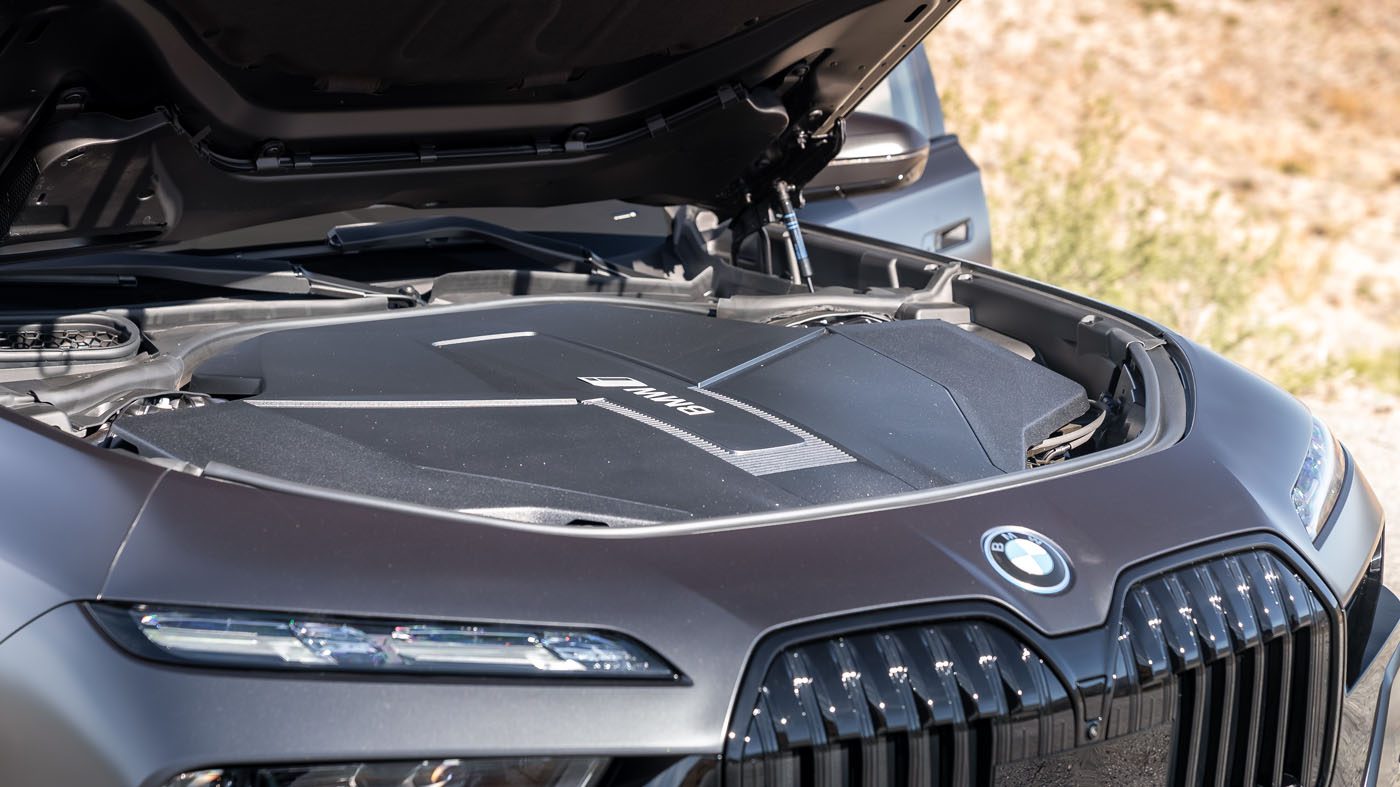
The added weight rears its head in the handling department. The 760i xDrive is a surprisingly willing dance partner through the corners. It hides its size and weight well and, thanks to its clever air suspension, remains relatively flat through the bends. The i7, however, never lets you forget that it’s packing a few extra pounds. It’s not nearly as agile or grippy and leans considerably more as you push it. Thankfully, its electrified powertrain and all-wheel drive system allow it to shoot out of corners confidently.
From a daily driving perspective, none of this matters because the i7 is a star in traffic. Its air suspension complements its already quiet nature by seemingly eliminating road imperfections. The only vehicle I’ve driven in recent memory that achieves this is the Rolls-Royce Phantom, which starts at over $400,000. As far as large luxury sedans go, there’s no longer a clear winner. BMW and Mercedes-Benz are dueling it out on level ground.
Tap the i7’s door handles, and its new automatic doors swing open to reveal a genuinely stunning cabin. While its curved 12.3-in instrument cluster and 14.9-in central display screens are executed beautifully, it isn’t this car’s flashy tech that impresses most. Instead, its massively improved interior materials steal the show. From soft-touch leather seemingly everywhere to glass details throughout, the i7 screams opulence.
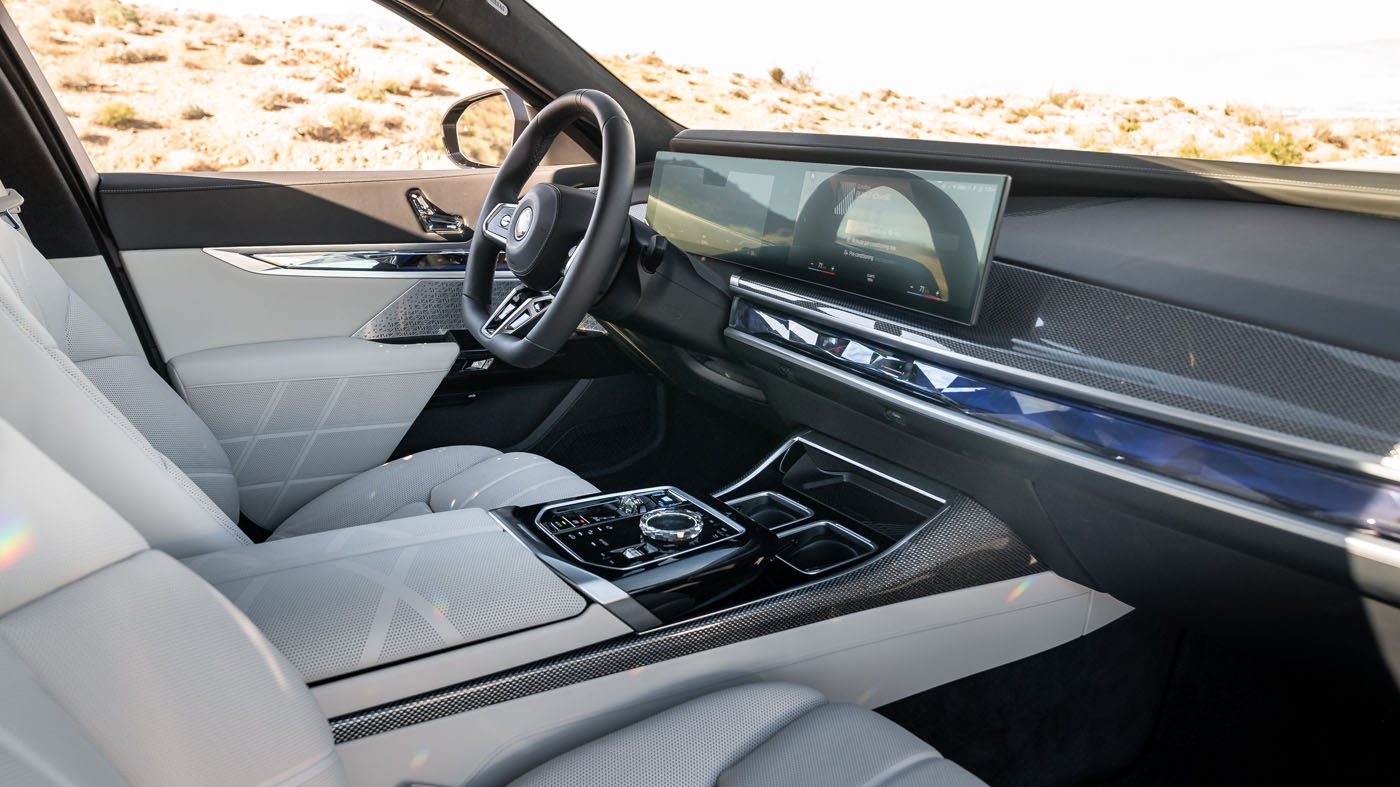
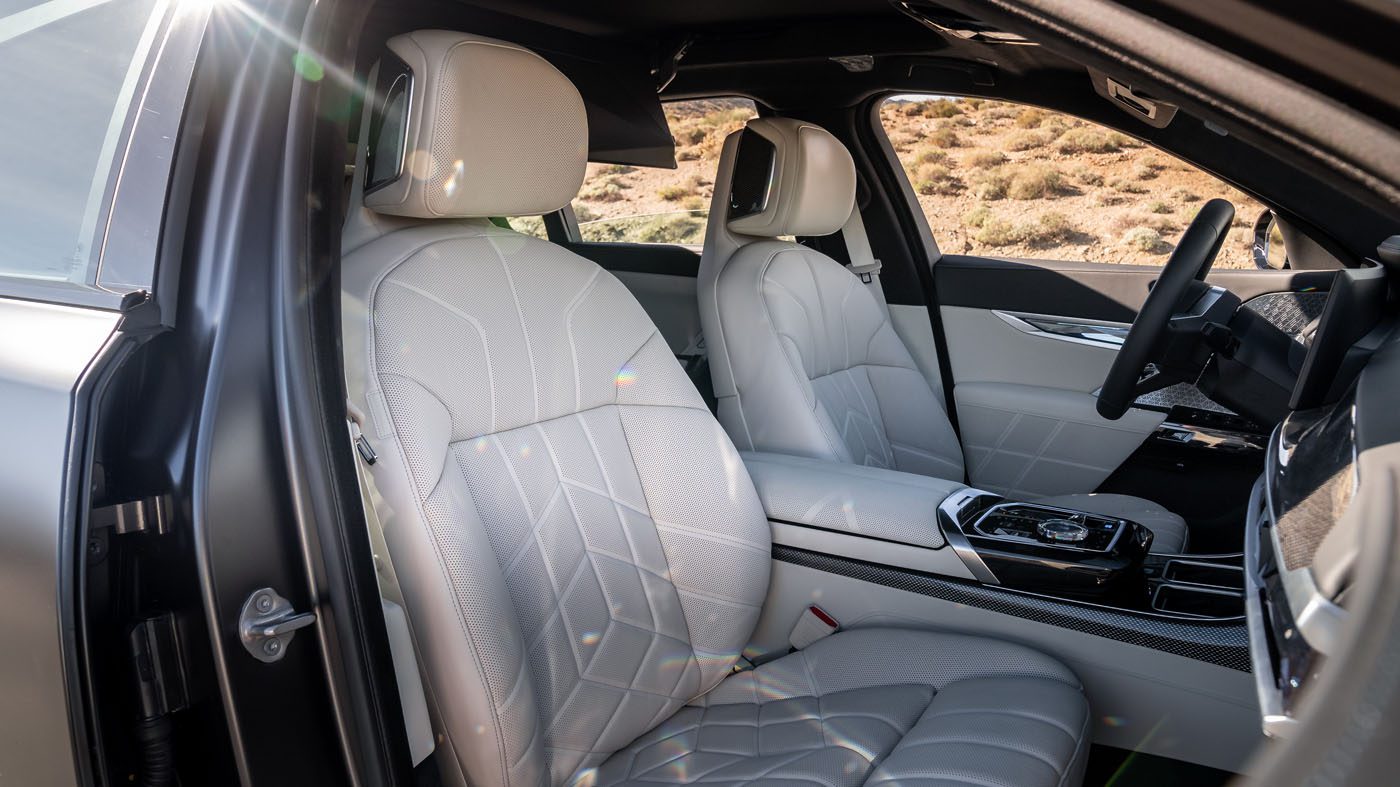
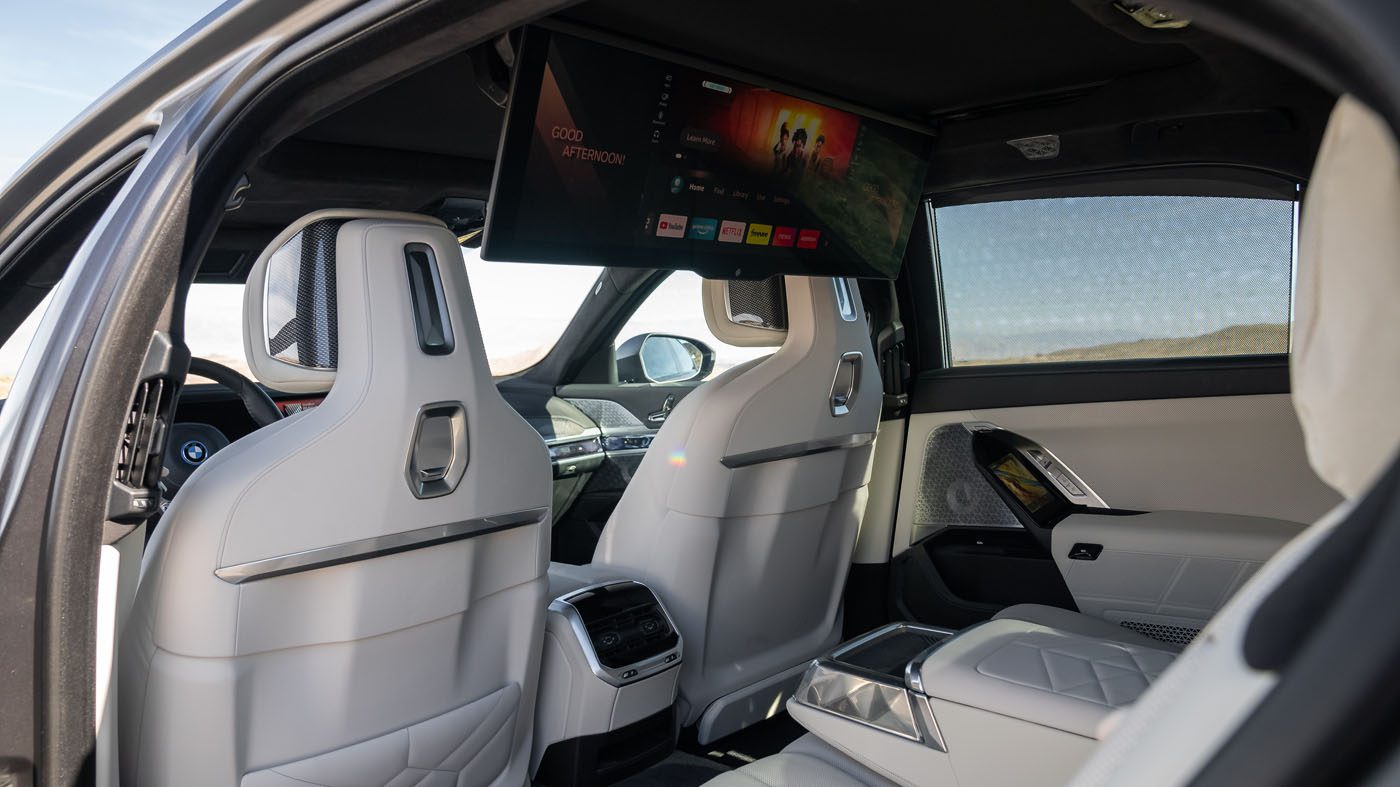
The G70 is not just an improvement over the outgoing model in terms of its interior. It is a massive leap forward. And aside from the excellent sound deadening mentioned earlier, it’s outstandingly comfortable. As standard, the i7 gets what BMW calls its “multi-contour” seats which offer both heating and cooling as standard in the i7 with an optional massage feature available as well. They’re plush, easily adjustable, and great to spend a lot of time in.
2022 Mercedes-Benz S580 4MATIC Review: Punching Way Above Its Class
The i7’s longer wheelbase translates to substantially improved interior space. With the optional Executive Lounge option, you get rear seats that can recline up to 42.5°. While other executive sedans have reclining seats, none offer the optional 31.3-in 8k touchscreen display found in my tester’s second row. It folds from the roof when called upon from a small touch screen embedded in the rear doors and offers vibrant colors.
At this price point and segment, these unique touches, like its seats, 8k screen, and automatic doors, set cars apart, and the BMW i7 is littered with them. It feels like BMW has given its flagship sedan significantly more attention than in the decade or so prior. It rivals not only its closest competitors but also knocks on the door of the Rolls-Royce’s that sit above it.
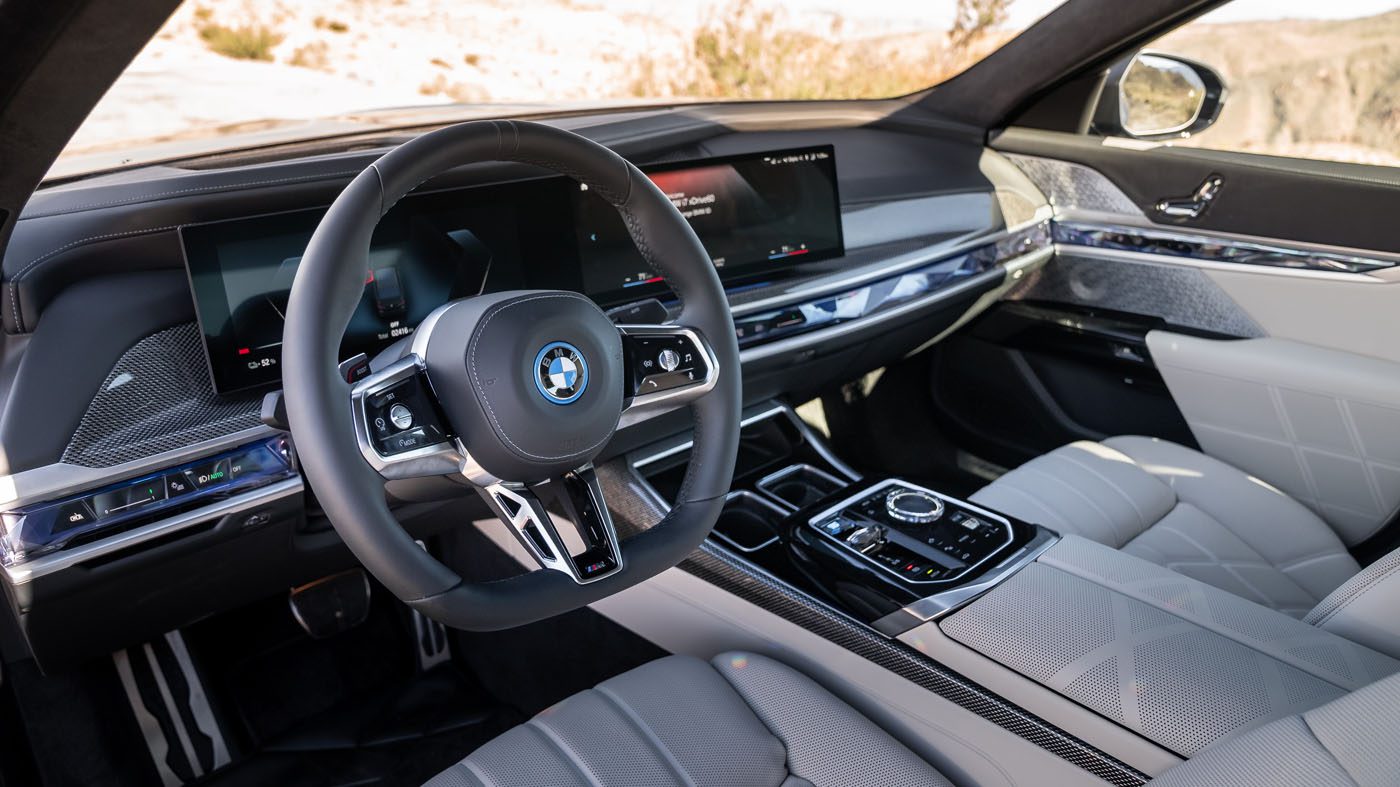
The 2023 BMW i7 starts at $119,300 plus $995 for destination fees. For context, the 760i xDrive mentioned earlier starts at $114,595, including destination, while the cheapest 740i starts at $94,295, including destination.
The 2023 BMW i7 may be the brand’s first electric flagship sedan, but it excels because of how much time and thought has gone into its development. From how it drives to how quiet and comfortable it is to ride in, the new seven is a much better car when batteries power it than fossil fuels.
BMW is taking a gamble with the i7, betting that luxury consumers will prefer a more traditional look than a futuristic aerodynamic aesthetic. Whether that is the case or not, there is no doubt the i7 is properly equipped to be one of the best luxury products the carmaker has ever made.
